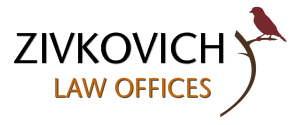Personal Estate Planning
A primary goal of estate planning is the protection of property. People have various goals in mind when creating a plan. Some are looking for ways to avoid unnecessary taxes or probate costs. Depending on your situation, tax-saving strategies may be applicable for your estate plan. Others are concerned with the distribution of their property following their death. You will want to consider a Will or a Trust if you have specific assets that you would like distributed in a certain manner. A Will or a Trust is also very important if you have children because you can state your preference for a guardian of your minor children and set up funds for them. Your estate plan should be reviewed and updated when any significant changes take place in your personal family relationships or wealth status or when there are legislative changes that may impact it as it is currently written. The best plan is one that fits your needs and family structure given consideration to your assets, liabilities, intentions, and prevailing legislation. Insofar as formulating that plan, it is critical to be informed of the ramifications of your actions so that you can make the right decisions for your situation.
Wills and Trusts are common tools used in estate planning but an estate plan should encompass more than that. A plan that protects your assets in the event of an unforeseen circumstance is reassuring. Plans created in our office are always drafted after an extensive consultation where we discuss potential situations and the options available to you.
Wills and Trusts are common tools used in estate planning but an estate plan should encompass more than that. A plan that protects your assets in the event of an unforeseen circumstance is reassuring. Plans created in our office are always drafted after an extensive consultation where we discuss potential situations and the options available to you.
Business Succession Planning
There are basic business structures that are available in all states such as a sole proprietorship, a partnership, and a corporation. These structures provide different advantages and have significantly varying tax consequences. In forming a business, you need to consider the number of owners, their relative comfort level with liability exposure, the amount of capital invested, the ability to adhere to ongoing procedural requirements, differing filing and annual fees, tax advantages, the business model, and future vision of the company. An important but often overlooked aspect of business formation is consideration of business succession planning. What will happen to the business in the event of your disability or death?
Generally speaking, attorneys who offer business formation and transactional business services possess basic to intermediate-level knowledge relevant to business tax implications. Additionally, these types of attorneys tend to have relationships with CPAs or accountants who are a resource for advanced tax questions. Some lawyers are also CPAs and some law firms employ accountants or CPAs. For any type of business transaction, it is always advisable to seek professional advice before entering into the contract, whether it be with another party, or in regard to your own business matters.
Generally speaking, attorneys who offer business formation and transactional business services possess basic to intermediate-level knowledge relevant to business tax implications. Additionally, these types of attorneys tend to have relationships with CPAs or accountants who are a resource for advanced tax questions. Some lawyers are also CPAs and some law firms employ accountants or CPAs. For any type of business transaction, it is always advisable to seek professional advice before entering into the contract, whether it be with another party, or in regard to your own business matters.
"Put not your trust in money, but put your money in trust."
Oliver Wendell Holmes
Asset Protection Planning
Asset protection planning is the process used to determine whether your risk of creditor exposure can be minimized. Protecting your assets from risk in business and personal financial planning is not a new concept. A major goal of this plan is to structure your assets so that you can retain a beneficial interest but reduce the likelihood of future potential creditor liability exposure. Increasing doubt about collectability reduces the likelihood that you will be sued or if you are sued, it increases the likelihood you will have a favorable outcome. It is a complicated area of law which relies on existing permissible legal structures and state case law to diversify and strengthen your position. Many professionals, business owners, real estate developers, and investors operate in high risk environments and could benefit from advanced asset protection planning.

